This page includes resources on a wide range of topics important to running a successful nonprofit organization. If there is specific content you would like to see listed, let us know at nonprofitcenter@aacounty.org.
The Nonprofit Center also welcomes resources submitted by the members of the nonprofit community. Resources must be created by a nonprofit organization, government entity, or educational institution. We are unable to post resources provided by for-profit business. If you are aware of a great resource that you'd like to share with others, please complete the resource submission form below.
Click "Grant Opportunities & Resources" to the left for resources specific to finding grants and grant writing.
2026 Monthly Observance Calendar
This 2026 calendar lists traditional holidays and important dates, nonprofit-centric dates, and observances that relate to health and wellness. It also provides more detailed information and tips related to one observance each month. The calendar was researched and edited by Mary Woods, a participant in the Maryland Corps / Service Year Program.
Hiring? Post to the NPC Job Board
The Nonprofit Center is pleased to offer a FREE Job Board just for nonprofits in Anne Arundel County! It's a quick and easy way to:
- Post new job opportunities
- Connect with local talent
- Save on recruitment costs
The Nonprofit Center has also gathered a list of national and local job boards that post nonprofit positions. This list includes quick links to each job board, prices, and other organizational information.
Find a Resource
Advocacy - Maryland Nonprofits - Outlines the difficulties facing individuals in Maryland and highlights the need for nonprofit involvement. Includes a list of advancement opportunities that covers topics such as housing, equitable access, and employment. Provides six broad principles to help guide nonprofit advocacy.
Advocate for My Mission - Maryland Nonprofits - Compiles a list of resources to help nonprofits advocate while maintaining a tax-exempt status. Organizes resources by the nonprofit life cycle; some resources require a membership to Maryland Nonprofits.
Voter Engagement Guide | National Council of Nonprofits - Research proves that when nonprofits encourage voting on a nonpartisan basis, people vote at significantly higher levels. This downloadable guide provides a roadmap of how charitable nonprofits can effectively engage in elections on a nonpartisan basis, leverage their networks for greater impact, and build relationships with elected officials.
Public Policy Agenda | National Council of Nonprofits - Outlines the NCN’s role in advocating for nonprofits. Organizes policy by topics such as tax policy, budget and spending, and the economy. Provides a link to a PDF format of the 2024 NCN Public Policy Agenda.
Everyday Advocacy | National Council of Nonprofits - Details the difference between advocacy and lobbying. Includes links to relevant web pages such as Advocacy in Action and Why Should Your Nonprofit Advocate?
Nonprofit Advocacy for Boards - Advocacy helps nonprofits advance their mission, increase their funding sources, and solve community and societal problems. Unfortunately, there is still a persistent misconception that nonprofits cannot lobby. This site, focused on boards, explains the benefits and the limits.
Nonprofit Advocacy Research - Independent Sector conducts landmark research on the state of nonprofit influence through advocacy, and recent data shows it’s in decline. The website highlights the statistics, offers downloadable resources, and offers easy ways to take action without reading the full report.
NonprofitVOTE Resource Library - List of tips, printable resources, recorded webinars, etc. for nonprofits from the producers of the 2024 Nonprofit Power report which showed nonprofit ability to increase underrepresented demographic voting because of deep community involvement.
National Council of Nonprofits: Governance and Leadership - Provides links to governance and leadership articles. While it does include resources on topics less relevant to board governance, many of the links are board-focused (e.g. Board Engagement, Board Orientation, 10 Steps to Create a More Diverse Board, etc.)
Board Source: Common Nonprofit Board Responsibilities - Offers recommendations for nonprofit boards based on legal and ethical standards. Provides links to templates covering board-related topics (e.g. The Board’s Role in Reviewing Form 990: A Checklist, Every Board’s Must-Have Documents, Nonprofit Board Member Code of Conduct and Ethics, etc.) Also includes links to various other resources; however, some are “member-only” and require a subscription.
Boards & Governance Resources from 501 Commons - A list of board and governance resource links. Includes links to websites as well as books. Provides a brief overview of the difference between a board and a boss.
Fiduciary Duties of Directors of Charitable Organizations - Specific to Minnesota, but outlines many of the necessary responsibilities of board members in any state. Organized by three individual duties (Proper Duty of Care, Duty of Loyalty, and Duty of Obedience), which are then broken into key components of each duty, accompanied by explanations. Check with the MD Comptroller’s Office, MD Attorney General’s Office, or an attorney to confirm information in Maryland.
The Fiduciary Responsibility and Nonprofit Boards | Maryland Philanthropy Network - A concise article that outlines nonprofit board responsibilities, defines the term "fiduciary relationship", and explains the fiduciary role as it pertains to nonprofit boards. Covers themes such as responsibility, transparency, and sustainability.
Nonprofit Board Resource Center | Bridgespan - Includes a number of resources from reliable organizations. Organizes resources by topic (Nonprofit Boards 101, Becoming a Nonprofit Board Member, Building a Nonprofit Board, Being a Nonprofit Board Member, etc.) Covers a range of board-related information.
Communications: Annual Reports
Ultimate Guide to Nonprofit Annual Report | Tips & Best Practices - Includes useful tips to creating an impactful nonprofit annual report as well as examples. Covers topics such as expressing gratitude, inspiring action, and using visuals to convey impact. Also includes what to leave out of an annual report, such as information that readers may not find valuable and irrelevant data.
5 Goals of a Great Nonprofit Annual Report - Provides five essential goals when crafting a nonprofit annual report. Also prompts the reader to consider and provide their own goals when designing an annual report.
Communications: Artificial Intelligence
Evaluating Suitability of Artificial Intelligence for Nonprofits | NetHope - Describes the ever-growing presence of AI, as well as how nonprofits may take advantage of these tools in an ethical and sustainable manner. Includes a link to the Artificial Intelligence (AI) Suitability Toolkit for Nonprofits, aimed at helping nonprofits decide whether they may benefit from AI usage and how to use it.
Unlocking Time-Savings and Cost Efficiency With AI Tools for Nonprofits - Explores twelve useful AI tools that nonprofits can use to increase time and cost efficiency. Discusses the value of AI technology for nonprofit use. Organizes tools by themes such as marketing, design and digital experiences, and task automation.
Communications: Communication Plans
The Ultimate Guide to Strong Nonprofit Communications » Philanthropy Circuit - Offers a comprehensive guide to nonprofit communications. Covers topics such as types of nonprofit communication, how to formulate a nonprofit communications plan, and how nonprofit communication plans differ from corporate communications.
The 5 Steps You Need for Strong Nonprofit Communication - Getting Attention - Discusses the four types of nonprofit communications: storytelling, marketing, fundraising, and engagement. Includes a five-step plan to develop a nonprofit communications plan according to the SMART goals framework.
Communications: Media Relations
Developing a Nonprofit Press Kit | NonprofitPR.org - A quick read that describes a press kit's purpose and gives specific information on what to include.
Why is Public Relations Vital for Nonprofits? | Building a Smart PR Strategy - Highlights the importance of a public relations strategy for nonprofits, as well as provides the six necessary steps to creating a successful nonprofit PR strategy. Includes examples of successful nonprofit PR campaigns and discusses their merits.
Top 10 Media Relations Tips for Nonprofits - Provides ten useful media relation tips for nonprofits. Covers themes such as appealing to an audience, keeping your message concise, and using visuals to promote your message.
Communications: Social Media
Social Media for Nonprofits - A useful guide for nonprofit organizations seeking to increase their social media presence. Outlines the steps to implementing social media for your organization and facilitating online fundraising. Includes a handy “tips and tricks” section that provides tools based around popular social media outlets.
Five ways nonprofits can leverage social media for greater impact | - Provides five strategies for using social media to increase nonprofit impact. Includes information on topics such as storytelling, expanding outreach through collaboration, and fundraising via social media.
Anne Arundel County’s ArundelStat | OpenArundel - A collection of tools, reports and data developed to empower county residents with information. Includes goals, objectives, and performance measurements for departments that may be relevant to nonprofits’ work like Partnership for Children, Youth and Families.
Anne Arundel County Department of Health | Statistics and Reports - Landing page to access several reports including annual community health indicator “report cards” and the Community Health Needs Assessment–comprehensive information about the health needs and health behavior of Anne Arundel County residents.
Chesapeake Bay Program Office |Chesapeake Assessment Scenario Tool - CAST is an environmental planning resource for those protecting and restoring local water quality and the Chesapeake Bay. Create and edit scenarios for reducing nitrogen, phosphorus, and sediment using various best management practices plus access additional tools and data. All who request a login are granted one.
Community Foundation of Anne Arundel County | Community Needs Assessment, Poverty Amidst Plenty - This free resource may help nonprofits to prioritize and develop strategies and implementation plans with measurable goals. Intended to frame informed discussions about persistent local trends and needs, this report provides an overview of the issues in Anne Arundel County that impact the economy and quality of life.
Community Preventive Services Task Force | The Community Guide - A collection of evidence-based recommendations and findings from an independent panel of experts appointed by the director of the CDC. This free resource covers what programs and interventions work to protect and improve population health, including those advancing health equity by modifying social determinants of health.
Maryland Department of Health | Vital Statistics and Reports - Collection of data and reports including Maryland Department of Health Annual Reports that cover health indicators including life expectancy, birth rates, and causes of death broken down by county.
Maryland Department of Health | Youth Risk Behavior Survey - Biennial survey of middle and high school students that provides state-wide and county-level data on behaviors that contribute to the leading causes of death and disability.
State of Maryland | Open Data - Similar to OpenArundel, this collection of tools, reports and data features subjects like public safety, health, and the environment. Some reports are specific to Anne Arundel County and others offer data broken down by county.
United Way of Central Maryland | ALICE Report - This free resource provides recent data and insights on the concerns of Maryland residents who often do not qualify for government benefits: those in low-wage jobs, with little or no savings who can be only one emergency away from poverty.
The Urban Institute | Mobility Metrics - These mobility metrics data tables are designed to help local leaders in every county and over 450 cities in the United States measure the status of and progress toward increasing upward mobility and equity in their communities. The Urban Institute, a nonprofit research institution, is a trusted source for free information on many important topics like the social safety net–as well as on nonprofits themselves. Though national in scope, some of this resource’s data tools offer Anne Arundel County-specific information or drill down even further (i.e., to a single school population).
US Census Bureau | Anne Arundel County Census Data - Explore data related to the county’s demographics including education, health, income, and housing. Also, access the same information for nearby counties for comparison.
Accessibility & Disability Justice YouTube Playlist from Americans for the Arts and Mid Atlantic Arts contains several recent videos that would be of interest to any nonprofit engaging with people with disabilities, like "Budgeting and Disability Justice" and "The Benefits and Ease of Accessible Marketing Techniques".
Blocking the Backlash: The Positive Impact of DEI in Nonprofit Organizations examines data from 2019 and 2022 surveys from Race to Lead which investigated the impact of DEI. It explores the effectiveness of different strategies as well as how different numbers of strategies affect nonprofits.
CCF’s 10 Principles of Community-Centric Fundraising - Identifies the 10 principles of fundraising and philanthropy, as to ensure the process is based in “racial and economic justice”. Principles include themes such as partnership, healing, and anti-racist policies. Click on each box for more information.
Why Disaggregating Data by Race is Important for Racial Equity - Promotes the importance of breaking down aggregated data as it relates to racial groups to highlight the struggles certain minority groups face that may be overlooked when viewing only aggregated data. Identifies the benefits of disaggregated data as it concerns identifying the root cause of an issue, as well as the increased comprehension of such data when viewed in a visual presentation.
Racial Equity - Defines racial equity and poses thought-provoking questions concerning a reality in which society is truly racially equitable. Also posted: links to a plethora of articles concerning equitable futures and the comprehension of racial equity.
Equity, Diversion, Inclusion: Action Toolkit for Organizations - A toolkit to be used by organizations to self-assess, understand, and learn about racial equity within the nonprofit sector. Includes action goals, self-assessment tools, and links to promote further understanding for each topic.
Resources for Racial Equity - Identifies numerous resources concerning racial equity, including the author and a summary below each link. Organizes links within three major themes: Thought Leadership, Internal Operations, and Philanthropic Practice.
Writings & Resources - A series of resources/links to further promote equity within a nonprofit organization. Includes video, journals, and articles.
Hosting an Event in Anne Arundel County
Special Events
Anne Arundel County defines a special event as an activity, athletic event, concert, parade, or public assembly (500 people or more) that is held on a designated day or a series of days and:
- exclusively uses public streets, alleys, right of ways, County waters, or other public property or;
- will physically impede or block the safe flow of vehicular and pedestrian traffic or;
- will necessitate the use of county services exceeding normal operations.
- This page outlines the application process for a special events permit. It includes FAQs and related forms and documents as well as a link to the Special Events Calendar that lists available dates.
Block Parties
Block parties are a type of special event that require additional permits. This page includes a checklist of requirements to host a block party in Anne Arundel County (e.g. location, date, time, etc.), as well as contact information for the Traffic Engineering Division, which oversees all block party requests. Reach out to TED early in the process if you have questions.
Available County Spaces Download Printable Document
Anne Arundel County Libraries offer meeting spaces across the county during library operating hours. Requests can be made up to 60 days in advance using their online system. Spaces cannot be used for fundraising events. The page includes FAQs and meeting room policies.
The Department of Recreation and Parks is responsible for scheduling events at school facilities and county/community parks. For all facilities other than regional parks, groups must go through an accreditation process. See the DRP Guidelines and Reference Manual for details. Fundraising events are allowed with special permits and a fee.
The County’s regional parks (maintained by DRP) have a variety of indoor and outdoor meeting / event spaces for use by outside organizations. Each facility has different rules and rates.
- Downs Park Special Event Application
- Fort Smallwood Park Special Event Application
- Kinder Farm Park Multipurpose Room
- Quiet Waters Park Blue Heron Room or Gazebos
- Regional Park Pavilion Rental
- All facilities managed by DRP are listed in a searchable online platform. Once you create an account, you can search by facility name and filter by facility or event type. It is often best, however, to reach out to the contact listed for the specific site you are considering.
General Event Planning Resources
Nonprofit Event Planning: 9 Simple Steps (+ Downloadable Checklist)
Includes a downloadable checklist and step-by-step guide to nonprofit event planning. Offers additional tips for a well-attended event, such as using text-to-give, thanking donors, and keeping your team informed.
Build Community with Nonprofit Event Planning
Offers a list of ten essential steps to consider when planning a nonprofit event, such as determining goals, establishing a budget, and identifying your audience. Also provides additional information on nonprofit event marketing.
A Nonprofit's Guide to Event Planning: 4 Essential Steps
Outlines the four mandatory steps to planning a nonprofit event. Offers links to payment processing tools, as well as constituent relationship management tools. Provides links to additional nonprofit event planning resources, such as creating a fundraiser invitation and using local outreach to engage the online generation.
About Fiscal Sponsorships | National Network of Fiscal Sponsors - Information available to non-members from this professional association is most appropriate for those considering becoming fiscal sponsors, but general information on the practice is useful to all. See fiscal sponsorship models and myths here or explore the site’s other resources (like podcast episodes and a member directory).
Fiscal Sponsor Field Scan Report - Social Impact Commons. National Network of Fiscal Sponsors co-produced this free 2023 field scan–the first in 17 years–including data from 100 fiscal sponsors and contributing to a baseline of understanding of the current fiscal sponsorship landscape. Helpful sections for nonprofits may include the glossary and features of commonly sponsored projects.
Fiscal Sponsorships: Get the benefits of a charity without being one - A helpful overview of fiscal sponsorships and their benefits. Includes information on types of fiscal sponsorships, general considerations for fiscal sponsorships, and the pros and cons of a fiscal sponsorship.
Starting a Nonprofit & Fiscal Sponsorship — 501 Commons - While the webpage also includes information relevant to nonprofits other than fiscal sponsorships, it provides valuable insight on fiscal sponsorships. Includes links to a fiscal sponsorship summary, sample agreements, and a fiscal sponsorship directory to help individuals locate their own fiscal sponsor.
What Is a Fiscal Sponsor? Start Your New Nonprofit Today | Classy - Provides a comprehensive guide to fiscal sponsorships, including an overview, the difference between fiscal agents and fiscal sponsors, and common questions related to fiscal sponsorships. Includes a link to the National Network of Fiscal Sponsors, which includes a list of potential sponsors.
How to find a Fiscal Sponsor | Association of Independents in Radio (AIR) - Includes links to fiscal sponsorship guides from trusted nonprofit resources such as Candid and Nonprofit Quarterly. Provides links to valuable resources and online databases when searching for a fiscal sponsorship. Describes different models of fiscal sponsorship, such as direct projects and pre-approved grant relationships.
Fiscal Sponsorship Additional Resources | National Council of Nonprofits - Outlines the basic guidelines of fiscal sponsorship. Provides links to fiscal sponsorship databases. Includes a list of practice pointers for nonprofit organizations who are considering becoming a fiscal sponsor and a link to their other webpage on fiscal sponsorships.
Fiscal Sponsorship Toolkit | Communities of Opportunity - Covers entering into a fiscal sponsorship relationship and creating written documents that capture the spirit and details of your collaborative work. Includes written materials on the nature of such relationships, a video highlighting key concepts, as well as document templates for a fiscal sponsorship agreement and a statement of shared values.
List of organizations that have served as fiscal sponsors in Maryland:
- Baltimore Civic Fund – Baltimore, MD
- Brown Girl Wellness, Inc. – Baltimore, MD
- Charm City Impact - Baltimore, MD
- Digital Harbor - Baltimore, MD
- Docs In Progress – Silver Spring, MD
- Economic Empowerment Foundation for Exempt Startups & Small Businesses (EEF-501c)™ – Bowie, MD
- Faith Based Nonprofit Resource Center – Elkton, MD
- The Federated Charities Corporation of Frederick – Frederick, MD
- The Fund for Educational Excellence - Baltimore, MD
- The International Association of Blacks in Dance, Inc. – Silver Spring, MD
- March On Foundation – Annapolis, MD
- Obasi Foundation, Inc. – Reisterstown, MD
- Players Philanthropy Fund – Towson, MD
- UPLIFT Alliance - Baltimore, MD
Adobe - Save up to 94% on Adobe Acrobat Pro. Create social posts, videos, flyers, mailers, and presentations for fundraising campaigns, events, donor communications, and more - for free - with Adobe Express for Nonprofits. Deals can change, so check out information directly at https://www.adobe.com/nonprofits.html.
Canva for Nonprofits - Canva for nonprofits offers all the premium features of Canva for Teams, free of charge. Nonprofits can complete the simple eligibility verification form that requires your 501c3 tax-exempt paperwork and start designing with access to over 400,000 templates today.
Community Law Center - Community Law Center is Maryland’s only legal services organization dedicated solely to strengthening neighborhoods and the nonprofit sector. For organizations with no practical means of obtaining funds to retain private counsel, it offers brief legal consultation meetings and does a great deal of pro bono work. Community Law Center also offers assistance with 501(c)3 tax exemption applications for new nonprofits regardless of budget.
Givebutter - Givebutter is the first completely free engagement platform for nonprofits. Sign up - for free - and enjoy unlimited access to their fundraising platform, CRM platform, and even their event platform, with no hidden fees - ever.
Zeffy - Like Givebutter, Zeffy is funded through optional donations of site visitors, so it is 100% free with no hidden fees. Nonprofits can set up individual fundraisers like ticket sales, auctions, and raffles where legal as well as ongoing income streams like memberships, donation forms, and e-commerce.
Google - Google for Nonprofits gives nonprofits access to Gmail, Drive, Meet, Calendar, Sheets, and even Classroom for $0/month. Plus, you’ll get access to Google’s security and management controls.
Microsoft Office - Microsoft hosts nonprofit-specific training for how to get the most out of their tools. They also offer grants for eligible nonprofits.
TechSoup - TechSoup offers over 375 discounted products from over 100 of the technology sector’s leading brands. From Microsoft Office to Intuit Quickbooks, nonprofits can get access to the hardware, software, and services they need at a price they can afford.
Superhero Support - Central Maryland "cause-play" nonprofit to support your fundraising or community-building events, awareness-raising activities, or visits to your ill or injured service recipients. While one can pay for their services or donate, offer them an in-kind sponsorship or ask for a review from their pro bono committee when requesting services through the standard form on their site.
Maryland Nonprofits - The membership organization offers free and reduced fee access to many of its trainings and programs as well as up to 20 hours of free consulting assistance to those accepted to the Nonprofit Development Center. Note: to be eligible, nonprofits must be under 10 years old with an operating budget under $750,000.
Note: The Nonprofit Center and Anne Arundel County do not endorse these, or any, specific products. They are listed as a service.
A Quick Guide to Compiling Donor Prospect Profiles - Highlights the importance of creating prospective donor profiles. Outlines seven areas of importance when compiling donor profiles, such as personal history, familial information, and organizational connections.
Wealth Screening vs. Prospect Research: Know the Difference - Identifies the differences between wealth screening and prospect research, as well as when to use each.
Determining Donor Capacity: Why It Matters and How to Use It - Notes the differences between donor capacity, donor propensity, and donor affinity. Includes tips for using donor capacity information to promote fundraising.
Discovering Donors: Prospect Research Basics - Defines prospect research in simple terms, as well as introduces the three ways nonprofits can determine their prospects: Do-It-Yourself, a consultant, or a prospect research company.
Grant Seeker's Toolkit Step 2: Prospect Research - Includes a multitude of links to help nonprofits identify potential foundation donors. Part of a larger toolkit for grant seekers.
The Art of Closing the Fundraising Ask - A blog post highlighting the main points to hit on during “the ask”. Highlights the importance of forming a relationship with a donor, rather than treating the request like a transaction.
Asking for Donations Without Pressuring Donors - While the “making the ask” section is only part of the article, it does contain valuable information surrounding the fundraising process, such as identifying undue pressure, understanding your fundraising audience, and ensuring the donors have an interest in the nonprofit.
9 Tips on How to Ask for Donations in Person - An informational blog post that focuses on setting reasonable donation goals, building concrete relationships with donors (such as showing interests in their personal and professional endeavors), and the benefits of donor research before “making the ask”.
All You Need to Know About Fundraising Scripts - Outlines the necessary steps to creating a fundraising script, as well as provides sample scripts for different fundraising scenarios (such as acquisition calls, reactivation calls, and calls to major donors).
Making the Ask - Even Virtually - Gives a basic overview of the steps necessary to “making the ask”. Also gives information on how to fundraise in a virtual setting. Includes a link to an extensive presentation focused solely on how to complete “the ask”.
Relationship-Management Toolkit - A comprehensive toolkit that includes information from soliciting donors to preparing to make the ask to stewardship. Includes templates for cultivation strategy and contact report.
Donor Retention Toolkit - Article discusses the importance of donor retention. Includes a sample donor timeline, stewardship checklist, and “Thank You Letter” template.
4 Strategies to Build Stronger Major Donor Relationships - Blog post with information on how to develop lasting donor relationships. Includes ideas such as connecting the donor with the organization through volunteering, creating impact reports, and asking for donor input.
Not-for-Profit Toolkit - While the toolkit is meant for nonprofits based out of Indiana, there are plenty of valuable resources that apply to nonprofits everywhere. Under the “Fundraising” section, there are several resources for donor relations and stewardship, including a “Donor Stewardship Guide” and “Donor Stewardship Plan”. Each link contains a brief description.
Welland Hospital Foundation Donor Recognition Categories - The contents of the PDF focus largely on donor recognition as it relates to this organization, however contents may also be applied to other nonprofits as well. Lists donation amounts and corresponding levels of recognition and stewardship.
Nonprofit Leadership - The Ultimate Guide for a Real Difference - Highlights the importance of allocating resources to leadership programs. Includes five steps to developing effective nonprofit leadership and nine practical methods for promoting nonprofit leadership.
8 Essential Nonprofit Management Skills and Development Tips - Outlines and describes the eight skills necessary for effective nonprofit leadership, such as marketing, public speaking, and interpersonal communications. Descriptions include an overview and tips.
18 Essential Nonprofit Leadership Skills [+ Career Tips] - Covers topics such as nonprofit leadership, nonprofit leadership as it differs from leaders in the for-profit sector, and nonprofit leadership styles. Promotes the importance of communication, respect, and strategic thinking within the nonprofit world.
How Nonprofit Leadership Development Sustains Organizations and Their Teams | Bridgespan - Highlights practices to develop and maintain leadership within a nonprofit organization. Includes a Nonprofit Leadership Development Toolkit, free to download.
NLCDD Resources: Links for Nonprofit Leadership - Provides a series of links and resources concerning nonprofit leadership development. Links mainly reference various leadership programs, case studies, and education opportunities. Includes a brief description of each resource.
Vision vs Mission Statement for Nonprofits -Describes the difference between mission and vision statements for nonprofits. Offers additional information on crafting a vision statement. Includes examples of effective vision statements.
Nonprofit Mission Statements – Good and Bad Examples -Delineates the importance of mission statements, as well as the attributes of well and poorly written statements. Provides three fundamental elements of mission statements, such as cause, action, and impact.
Codes of Ethics/Values Statements for Nonprofits -Explains the purpose behind crafting a value statement for your nonprofit, as well as a list of practice pointers on integrating a value statement within a nonprofit. Includes links to sample value statements from verified nonprofits.
20 Exceptional Nonprofit Vision Statement Examples -A list of twenty valuable nonprofit vision statements, as well as why the statement works. Describes the importance of a strong vision statement.
Developing a Mission Statement -A step-by-step guide to creating a mission statement. Includes a worksheet that helps define an organization’s goals, and how that may be crafted into a mission statement.
Business and Nonprofit Program Planning and Management - Defines programs as they relate to nonprofits. Provides links to additional resources on the different components of nonprofit program management, such as basic guidelines, evaluations, and a feasibility study.
Programme and project management tools and techniques | Department of Finance - While not directed towards nonprofits, the information is applicable to a variety of organizations. Includes descriptions and links to multiple techniques such as SWOT analysis, a RACI diagram, and stakeholder mapping.
Program Planning | ECLKC - A government resource that focuses on the planning aspect of program management. Offers links to helpful tools such as an annual planning calendar for program management, community assessment standards, and a self-assessment that focuses on the process of planning and finalizing a program.
Best Practices for Nonprofit Project Management — 501 Commons - A list of the four best practices to implement when facilitating nonprofit program management. Covers themes such as problem-solving, crafting lasting relationships with stakeholders, and project management software.
Step by Step Guide to Evaluation | W.K. Kellogg Foundation - Long enough to be a book, this free downloadable guide is a substantive introduction to many evaluation topics including every stage of the process plus extras like creating a culture of data and learning. Its intended audience includes nonprofits and community leaders.
Arizona State University | How to improve volunteer retention - Outlines the importance of volunteer retention, as well as ways to increase volunteer satisfaction and attendance.
Getting Attention | 16 Proven Strategies - Provides resources for recruiting and retaining volunteers. Offers a free volunteer job description template, as well as sixteen tips on how to increase recruitment.
National Association of Nonprofit Organizations and Executives | Recruitment Best Practices - Provides insight on the volunteer recruitment process. Promotes social media use, connecting with local media, and utilizing the internet to garner attention.
Nonprofit Hub | Recruitment Strategies - An informative article covering three simple, cost-effective strategies to promote volunteer recruitment. Strategies include social media use, recruitment events, and finding volunteers through word of mouth.
Penn State University | Volunteer Management - Summarizes information from a variety of sources on the topic of volunteer management into three succinct phases. Includes references.
Substance Abuse and Mental Health Services Administration | Recruiting, Utilizing, and Training Volunteers - A comprehensive guide for faith and community-based service providers. Covers topics on the different aspects of working with volunteers, such as recruiting, training, and managing.
Strategic Volunteer Engagement - This report includes an assessment of evidence-based practices support the recruitment and retention of volunteers, plus guidance for those managing a volunteer program.
University of Florida | Keeping Volunteers - Delineates the importance of ensuring volunteer satisfaction, and how it relates to volunteer retention over time. Offers recommendations for nonprofits looking to improve the volunteer experience.
The University of Kansas | Recruiting Volunteers - Illustrates the various methods in which a nonprofit organization may recruit volunteers, as well as offers insight into why volunteers might feel motivated to participate in a nonprofit event.
Did you know that volunteering can have positive impacts on your mental health?
Check out the Nonprofit Center's Volunteering and Your Mental Health brochure,
which highlights the physical, social, and emotional benefits of volunteering. Then, check out the
Nonprofit Events Hub at aacounty.org/neh for volunteer opportunities and other activities.
National Council of Nonprofits | Considering Closure - Provides questions for nonprofit leadership to ask when considering closure. Practical guidance for communication on the topic.
National Council of Nonprofits | Dissolving a Nonprofit Corporation - Breaks down steps an organization should take to shut down its legal entity as well as general considerations to prioritize.
Propel Nonprofits | Strategic Sunsetting - Discussion of how to “sunset” a nonprofit organized by subject area (i.e., communications, human resources, etc.) that is both practical and positive.
Foundation Group | Dissolving a 501(c)3 Nonprofit: A Comprehensive Guide - Shared in 2024, this resource includes written guidance for nonprofit dissolution and a 10-minute video on the subject.
Internal Revenue Service | Termination of an exempt organization - Instructions from the IRS (which certifies 501(c)3 organizations) about how to properly inform them your nonprofit is shutting down.
Nonprofit Quarterly | Nonprofit Dissolution: What to Do When Closing the Doors - Outlines the steps and tasks involved in dissolving a nonprofit with a focus on honorable and respectful transitions.
University of San Diego | Dissolution Manual - A 2013 publication relevant for those with a planned sunset or a forced closure. Covers information sharing & budgeting, working with key stakeholders, and legal implications. The sources list may help nonprofits locate additional relevant resources.
Candid | How to start a nonprofit organization - offers general guidance on how to start a nonprofit organization. Please note: specific steps may vary for each state.
Chamber of Commerce | How to start a nonprofit in MD
Foundation Group | How to start a nonprofit in MD
IRS | Charitable Organizations IRC 501(c)(3)
Maryland Nonprofits | Steps to Start A Nonprofit
Maryland Secretary of State | Charitable Registration Forms and Instructions
Nonprofit Hub | Nonprofit Startup Guide
Starting a New 501(c)(3) Organization vs. Using a Comprehensive Fiscal Sponsor
Board Source | Five Phases of Strategic Planning (.pdf)
Bridge Span | Nonprofit Strategy - a series of articles and downloadable toolkit licensed under Creative Commons.
Funding for Good | Strategic Planning - offers some interesting (and free) blog posts
Illinois State University | Strategic Plan - focused on higher education, but includes examples and templates that can be adapted to other sectors.
Syracuse University | Strategic Planning Resources - focused on higher education, but includes adaptable templates and a rubric to evaluate a plan. Many colleges and universities have similar resources.
Examples of Nonprofit Strategic Plans
Nonprofits upload their strategic plans in Guidestar to earn a seal of transparency. Simply search “Guidestar Strategic Planning” to find several examples. Add “food” “youth” or another defining search term to identify a more narrow field of organizations. Looking at current strategic plans can be very helpful to organizations embarking on their own process.
8 Ways Managers Can Support Employees’ Mental Health - Provides useful strategies for managers to implement in the workplace. Highlights the importance of healthy communication, flexibility, and establishing regular check-ins with staff.
Resource Guide - A comprehensive guide to available mental health and substance use resources; employers may choose to include these for their company resources. Provides links to anonymous mental health screenings, crisis intervention organizations, and general assistance.
Create a Mental Health-Friendly Workplace - Breaks down the steps to creating a mental health-friendly work environment into the “4 A’s.”: awareness, accommodations, assistance, and access. Each section includes various resources such as toolkits, training videos, and checklists.
The Mental Health Movement in the Workplace | NAMI: National Alliance on Mental Illness - Lists the actions companies may take to promote mental health in the workplace, such as implementing policies, allowing for accommodations, and requiring supervisor training.
Workplace Mental Health and Wellness Toolkit - An extensive toolkit that looks at the detrimental effects of the Covid-19 pandemic on employee mental health and highlights ways to promote mental health in the workplace. Offers links to additional toolkits and mental health resources.
Managing Your Personal Energy as a Nonprofit | Federated Charities - The Frederick, Maryland center offers long form video trainings including this one to help nonprofit professionals who struggle to help themselves while they are busy helping others. It discusses how to renew personal energy by treating life as a series of sprints and recovery.
Podcasts for Nonprofit Leadership
Looking for something productive to do during your morning commute? Check out these podcasts.
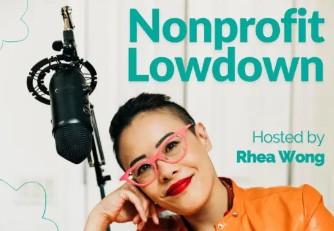 | The Nonprofit Lowdown host reviews and recommends the best ideas, resources, tools, tricks and tips to run a nonprofit like a pro. |
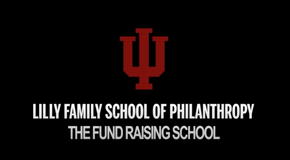 | The Fund Raising School produces a free, weekly, 10-20 minute podcast that provides fundraisers with the latest news and research about fundraising and philanthropy. |
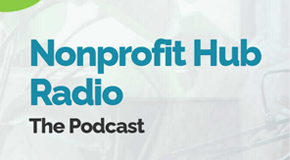 | The Nonprofit Hub Radio podcast series gives you the opportunity to experience a new way to not only learn, but to be inspired. Each week features a thought leader who is influencing or working in the nonprofit sector. Whether starting a nonprofit or taking an existing cause to the next level, The Nonprofit Hub Radio Podcast is about breaking down how nonprofits can do better. |
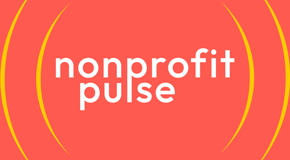 | Nonprofit Pulse is a podcast for nonprofits that explores trends, insights, and resources that help nonprofits accomplish their mission. This nonprofit podcast takes a deep dive into the stories and experiences of industry leaders, offering valuable insights, lessons learned, and practical advice. |
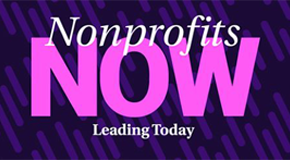 | In Nonprofits Now: Leading Today, the host asks leaders to share proven approaches to working with their boards, managing intergenerational staffs, hiring and motivating strong senior teams, and much more. Every episode offers ideas you can put to work right away. Listen now to learn from your peers about how they’re tackling today’s most pressing issues. |
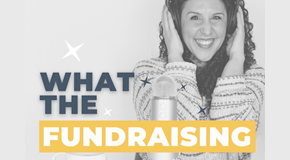 | Fundraising doesn’t have to be uncomfortable. In What the Fundraising, you’ll learn how to bring in more gifts from the right donors, so you can stop hounding people for money. |
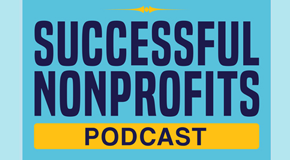 | The Successful Nonprofits Podcast is on a mission to help nonprofits and their leaders thrive! Hosted by their principal consultant, Dolph Goldenburg, each episode shares expert guidance and advice tailored specifically for executive directors and other nonprofit leaders. Join them as they dive deep into conversations with best-selling authors, nationally renowned consultants, and seasoned nonprofit veterans. Ranked among the top 2% of podcasts globally, the Successful Nonprofits® Podcast is your go-to resource for invaluable insights and strategies to propel your career and your organization to new levels of success. |
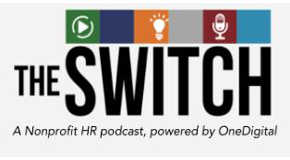 | Power your talent management journey with The Switch. Gain expert insights from Nonprofit HR, powered by OneDigital, and industry leaders in the social impact sector. Listen on your favorite platforms for timely and impactful knowledge. |
 | Listen to Connected Philanthropy for discussions with experts from funding organizations, social good organizations, and more to learn about out-of-the-box programs and initiatives that are successfully tackling today’s biggest challenges. |
Share a Resource
The NPC will continue to add resources as we find them, but we could use your help. If you have found a resource that has truly saved your organization time or money, or has helped you achieve your goals more effectively, please considering sharing it with your nonprofit colleagues by submitting it on the form below.
